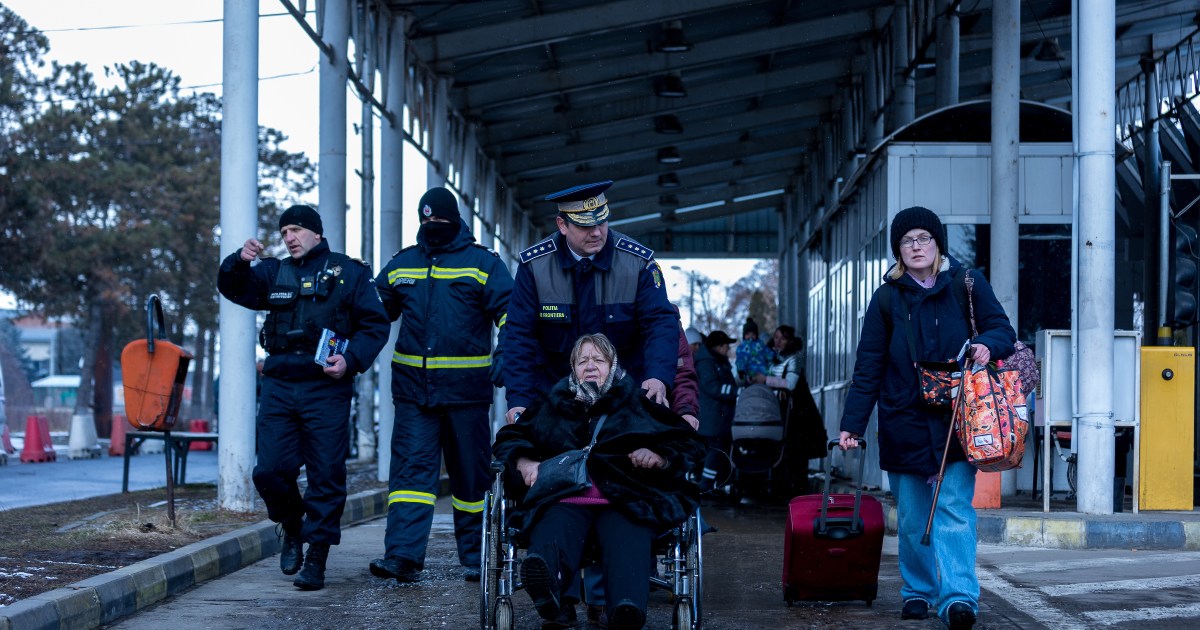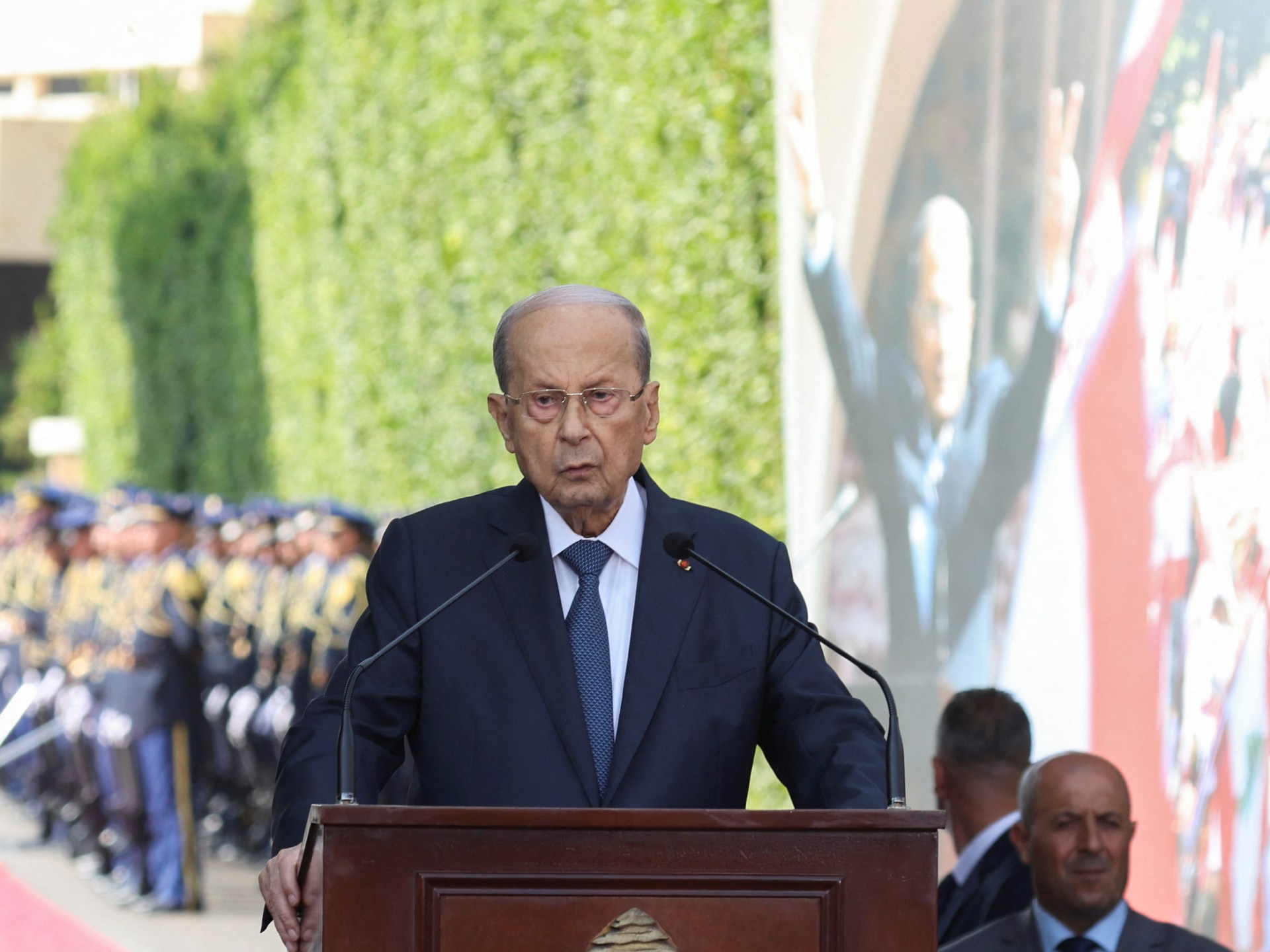Ukrainian refugees receive an outpouring of support in Romania
Suceava county, Romania – After Poland, Romania has seen the second highest influx of Ukrainian refugees since the war began on February 24, with Russia’s invasion.
Upon arriving at the Siret border, their documents are processed efficiently, which comes as a relief having waited in lengthy queues to leave Ukraine.
“We are the first to see them after they say goodbye to their fathers, husbands, brothers. It is very hard to see this scene, the least we can do for them is to process their documents in the shortest time possible, so that they finally feel at peace and safe,” Ilie Poroch-Seritan, spokesman of the Territorial Service of the Border Police (STPF) Suceava, told Al Jazeera.
After collecting their passports, a few metres away they are welcomed by dozens of policemen, firemen, volunteers and everyday Romanians, keen to help in any way possible.
In sub-zero temperatures and heavy snowfall, they do not hesitate – they carry the refugees’ suitcases, give them a hug or a hot coffee. They take children in their arms to tents set up by volunteers and organisations. They escort these people fleeing war to one of the many free transport options that await.
“Coming here, and seeing all the people helping us, giving us food, makes us feel loved. I cried as soon as I crossed the border, I didn’t expect this from the Romanian people,” said 58-year-old Tatiana, who left Kyiv with her daughter Alona – and her two cats.
On International Women’s Day, March 8, hundreds of flowers were given to the women who crossed the border.
“I thought I would not receive flowers this year, I have just said goodbye to my husband on the other side of the border, and arriving here and receiving this yellow flower with a smile touched my heart. I could not stop crying,” said Oksana, a 37-year-old English teacher who arrived from Kharkiv with her two children.
Poroch-Seritan said: “Romanians are characterised by our solidarity and this situation amplifies that quality; everyone is motivated to make the people arriving from Ukraine feel safe. We are policemen, but first of all, we are human beings.”




